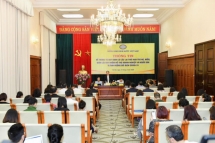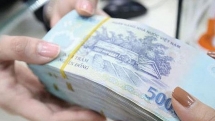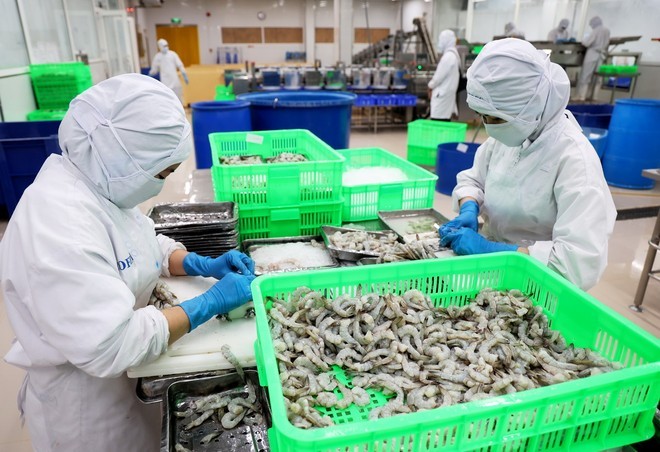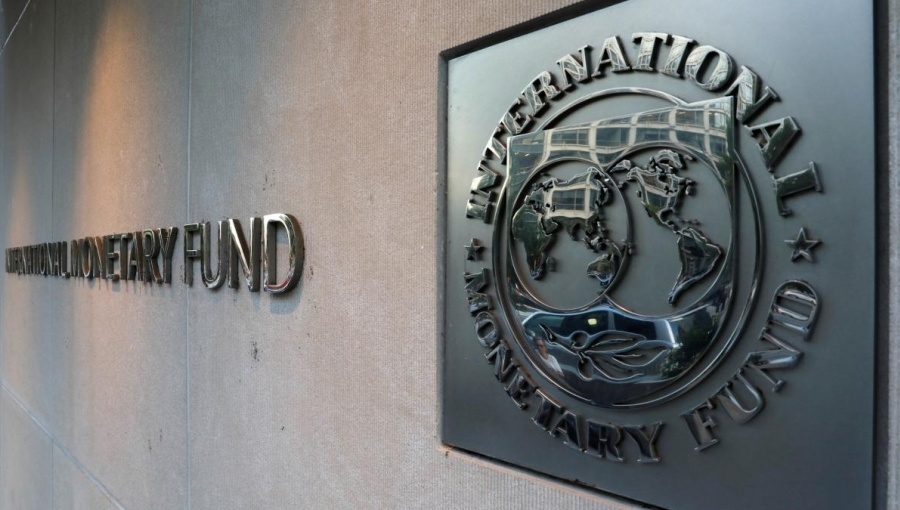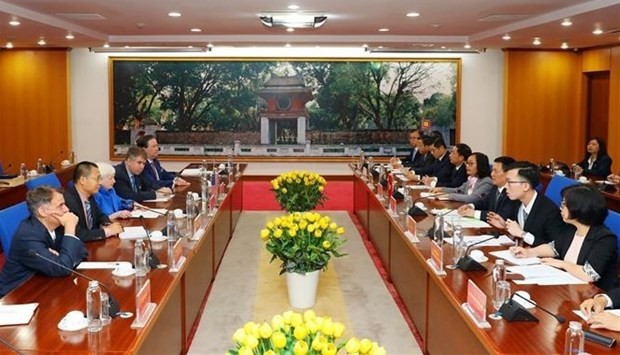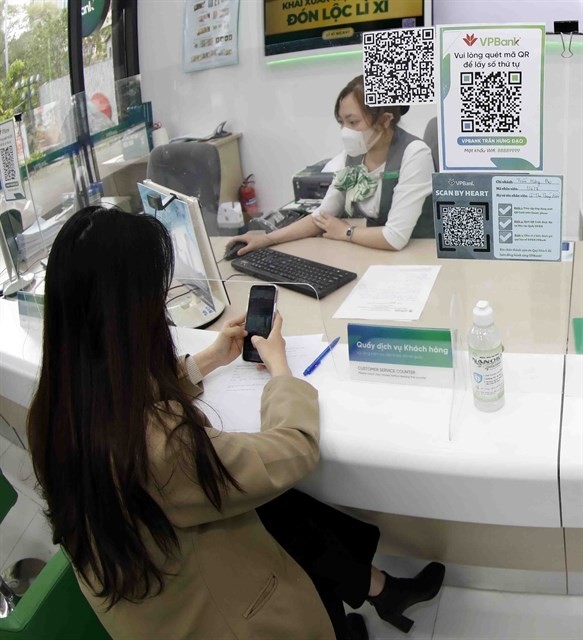State Bank of Vietnam reject US claims as ‘currency manipulator’
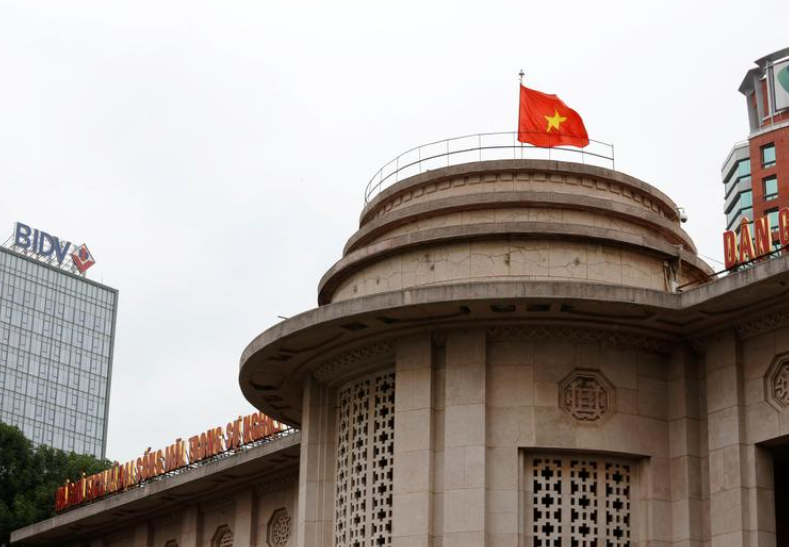 |
| The State Bank of Vietnam building. (Photo: Reuters) |
On December 16, U.S. Treasury published the "Macroeconomic and foreign exchange policies of major US trading partners" report, which accused Vietnam, Switzerland, India, and Singapore of "intervening in the foreign exchange market in a sustained, asymmetric manner". The report stressed "Two of these economies – Vietnam and Switzerland – exceeded the two other objective criteria established by Treasury to identify potentially unfair currency practices or excessive external imbalances, which could weigh on U.S. growth or harm U.S. workers and firms".
In response to the US report, SBV announced on Thursday that Vietnam’s monetary policies in the past have only served to contain inflation and ensure macroeconomic stability. It does not seek unfair trade advantages. The Bank confirmed that these policies would be carry on in the coming future.
The Bank emphasized that Vietnam's bilateral trade surplus with the US was the result of special factors of the Vietnamese economy. SBV's recent act of buying foreign currencies was to ensure the sustainable operation of the foreign currency market. This move has contributed to stabilizing the macroeconomy, and at the same time strengthening the State foreign exchange reserve, as the country’s foreign reserves were at a low level compared to other countries in the region.
Vietnam highly regards its trade relationship with the U.S. and will continue to work with U.S. authorities to ensure a "harmonious and fair" trade relationship, it adds.
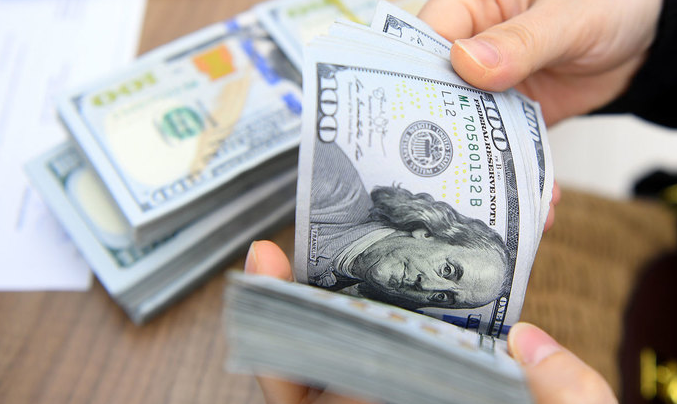 |
| An employee counts Vietnamese banknotes at a bank in Hanoi. (Photo: VnExpress) |
The "Macroeconomic and foreign exchange policies of major US trading partners" report is published twice a year, in accordance with the US's Trade Priorities and Accountability Act of 2015.
A country has to meet 3 criteria below to be labeled "manipulator":
(1) $20 billion bilateral trade surplus with the U.S.,
(2) Foreign currency intervention exceeding 2 percent of GDP,
(3) A global current account surplus exceeding 2 percent of GDP.
In its report, the U.S.Treasury also added Taiwan, Thailand, and India to its currency manipulation monitoring list. Others remaining on the list are China, Japan, South Korea, Germany, Italy, Singapore, and Malaysia.
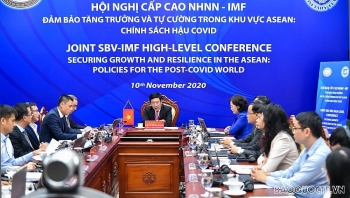 | Countries seek ways to secure growth and resilience in ASEAN post-COVID-19 As one of the activities on the sidelines of the 37th ASEAN Summit, a joint SBV-IMF high-level conference, themed “Securing Growth and Resilience in the ... |
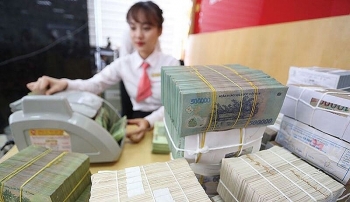 | Vietnam central bank reports credit growth at 4.81% in Jan-Sept Vietnam's credit growth is estimated at only 4.81% as of September 16, which is far away from the target of 14% for this year. |
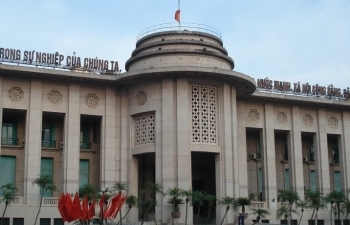 | State Bank of Vietnam to simplify procedures for preferential loan access The state bank will consider simplifying lending procedures to help COVID-19-affected firms easily access preferential interest rate loans, Deputy Director of the State Bank of ... |
Recommended
 National
National
Shangri-La Dialogue 22: Vietnam Highlights Some Issues of Ensuring Stability in a Competitive World
 National
National
Vietnam News Today (Jun. 3): PM Pham Minh Chinh to Attend UN Ocean Conference, Visit Estonia, Sweden
 National
National
Vietnam News Today (Jun. 2): Vietnamese Trade Mission Sounds Out Business Opportunities in United States
 National
National
Vietnam News Today (Jun. 1): Vietnamese, Japanese Firms Foster Partnership
Popular article
 National
National
Vietnam News Today (May 31): Vietnam Strongly Supports Laos’s National Development
 National
National
Vietnam News Today (May 30): Vietnam, Venezuela Reinforce Ties Through People-to-people Diplomacy
 National
National
Vietnam News Today (May 29): Vietnam and Hungary to Expand Cooperation into New Areas
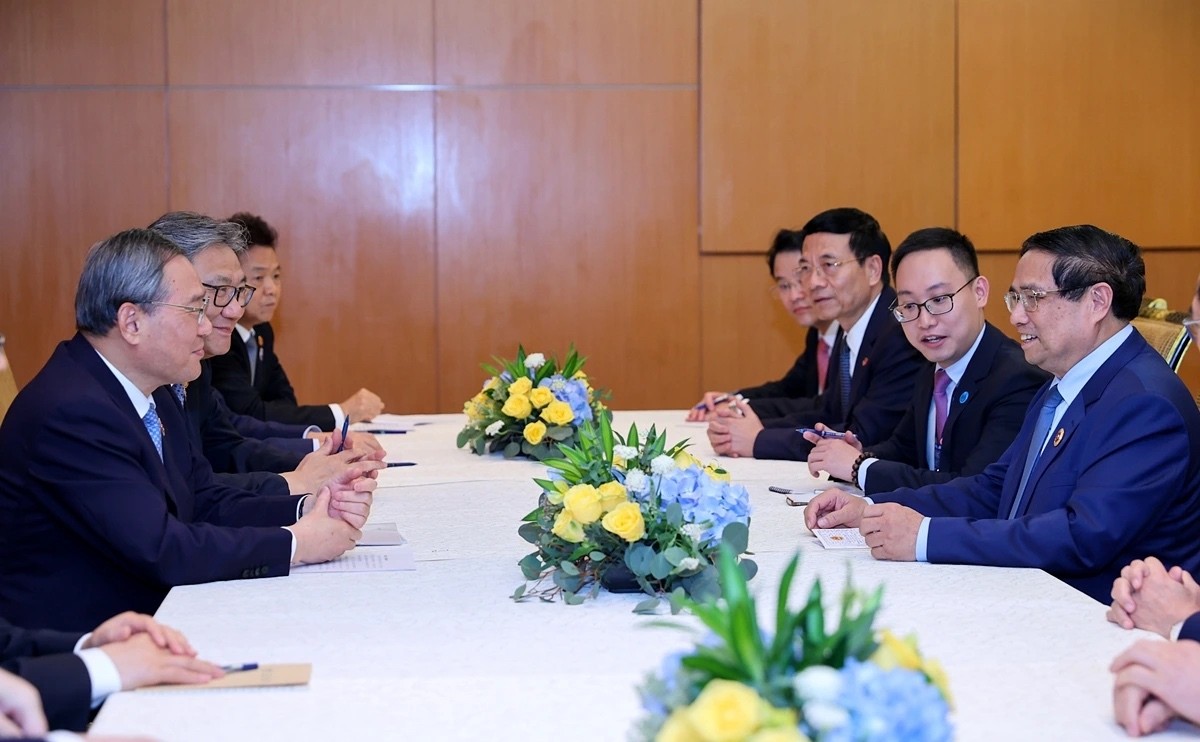 National
National


